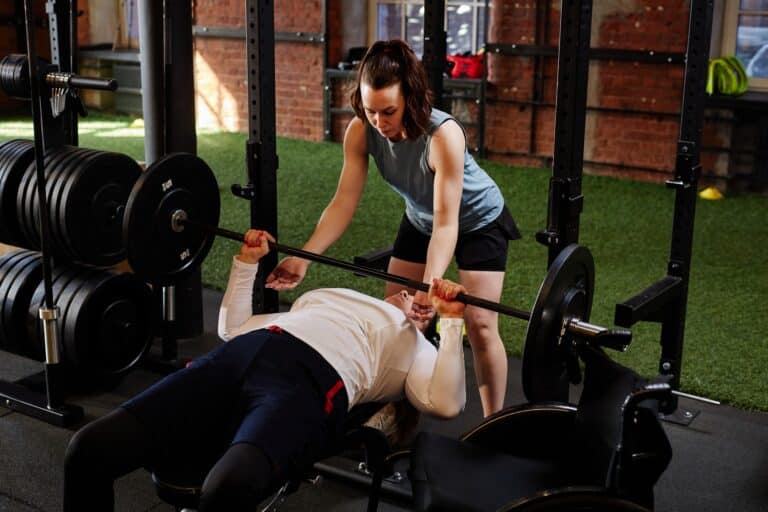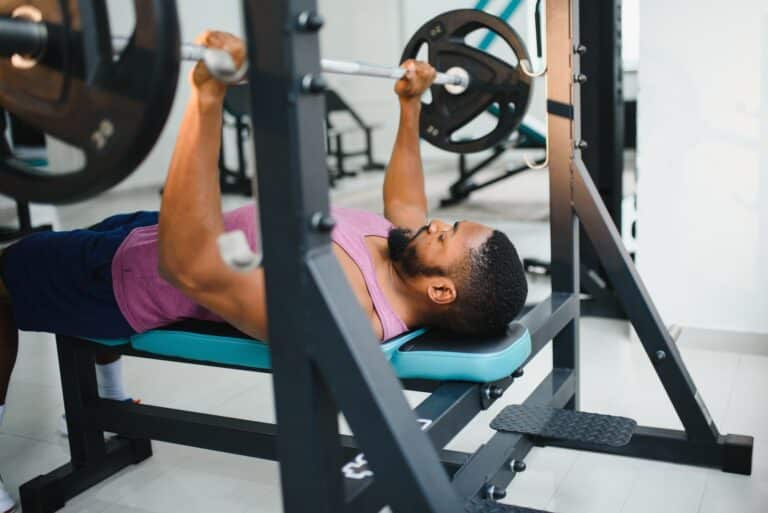Understanding the Biomechanics of Strength Training for the NSCA CSCS Exam
When preparing for the NSCA CSCS exam, it’s essential to grasp the fundamental principles of biomechanics. This knowledge is crucial not only for passing the exam but also for designing effective and safe strength training programs. In this blog post, we will explore the key concepts and theories behind biomechanics, providing valuable insights for your NSCA CSCS study and prep course.
What is Biomechanics?
Biomechanics is the science that examines the forces acting on the body and the effects they produce. It integrates principles from mechanics, physics, and anatomy to understand how muscles, bones, tendons, and ligaments work together to produce movement. For those studying for the NSCA CSCS, a solid understanding of biomechanics is essential for analyzing and improving athletic performance.
Key Concepts in Biomechanics
Kinematics
Kinematics is the study of motion without considering the forces that cause it. Key kinematic variables include displacement, velocity, and acceleration. Understanding these variables helps in analyzing movement patterns and identifying areas for improvement.
Kinetics
Kinetics involves the study of forces that cause motion. This includes internal forces (muscle contractions) and external forces (gravity, friction). For NSCA CSCS candidates, understanding kinetics is crucial for designing training programs that optimize force production and minimize injury risk.
Levers and Torque
The body uses a system of levers to produce movement. Levers are classified into three types: first-class, second-class, and third-class. Torque, or the rotational force produced by a lever, is a critical concept in biomechanics. Knowledge of levers and torque helps in maximizing the effectiveness of strength training exercises.
Newton’s Laws of Motion
Newton’s laws form the foundation of biomechanics:
- First Law (Inertia): An object will remain at rest or in uniform motion unless acted upon by an external force.
- Second Law (Acceleration): The acceleration of an object is proportional to the net force acting on it and inversely proportional to its mass.
- Third Law (Action-Reaction): For every action, there is an equal and opposite reaction.
Applying Biomechanics in Strength Training
Exercise Selection
Understanding biomechanics helps in selecting exercises that target specific muscles and movement patterns. For example, the squat is a compound movement that involves multiple joints and muscles, making it effective for developing lower body strength.
Technique Optimization
Proper technique is crucial for maximizing performance and reducing injury risk. Biomechanics provides insights into optimal joint angles, body positioning, and movement trajectories. For instance, maintaining a neutral spine during deadlifts reduces the risk of lower back injuries.
Program Design
Biomechanics informs the design of training programs that enhance specific physical qualities such as strength, power, and endurance. Understanding the principles of progressive overload and periodization ensures that programs are tailored to an athlete’s needs and goals.
Injury Prevention
Analyzing movement patterns and identifying biomechanical deficiencies can help prevent injuries. For example, valgus collapse (inward knee movement) during squats can indicate weak hip abductors, which can be addressed through targeted strengthening exercises.
Biomechanics in the NSCA CSCS Exam
The NSCA CSCS exam includes questions on biomechanics as part of the scientific foundations section. Candidates are expected to understand and apply biomechanical principles to assess and improve athletic performance. Key areas of focus include:
- Analysis of movement patterns
- Understanding the mechanics of different exercises
- Application of force and motion principles in training
- Identification and correction of technique errors
Enhancing Your NSCA CSCS Study and Prep Course
To excel in the biomechanics section of the NSCA CSCS exam, consider the following study tips:
Utilize Visual Aids
Diagrams and videos can help visualize complex concepts and understand movement patterns. Resources such as textbooks, online courses, and prep course materials often include visual aids to enhance learning.
Practice Analysis
Analyze the biomechanics of various exercises and movements. Break down the motion into its kinematic and kinetic components and identify key factors that influence performance.
Apply Concepts Practically
Incorporate biomechanical principles into your own training or coaching practice. Experiment with different exercises and techniques to understand their biomechanical implications.
Take Practice Exams
Practice exams and quizzes can help reinforce your knowledge and identify areas that need further study. Many prep courses offer practice questions specifically designed to mimic the format of the NSCA CSCS exam. GIFTED Academics offers such exams in our NSCA CSCS Self-Led Online Prep Course – CLICK HERE to learn more!
Conclusion
Understanding the biomechanics of strength training is essential for passing the NSCA CSCS exam and becoming a successful strength and conditioning coach. You can enhance your NSCA CSCS study and prep course experience by mastering key concepts and applying them in practical settings. This knowledge will not only help you excel in the exam but also enable you to design effective and safe training programs for athletes.
GIFTED Academics NSCA CSCS Exam Prep Course
Consider utilizing our NSCA CSCS Self-Led Online Course to help you through the preparation process.
Designed by expert instructors with experience in the field, our certification exam preparation online courses are designed to bring students from baseline to certified in 12-14 weeks, much quicker than other self-paced options.
This self guided, 100% online course is your one-stop-shop for NSCA CSCS Exam Preparation, including video lectures from our expert instructors and slide downloads for each chapter, lifetime access to all course materials, auto-graded sample midterm & final exams, and access to the course via both web & mobile on the Kajabi learning platform.
Additionally, you can purchase packages that include Virtual 1-on-1 Instructor Review Sessions for more personalized guidance. During these sessions, you can discuss the course material, receive assistance with any sections you are struggling with, and have any questions you have about the exam answered.
Don’t wait—join the ranks of our many satisfied customers with a 100% pass rate! CLICK HERE to learn more and get started.
Happy studying, and good luck on your journey to becoming a certified strength and conditioning specialist!





